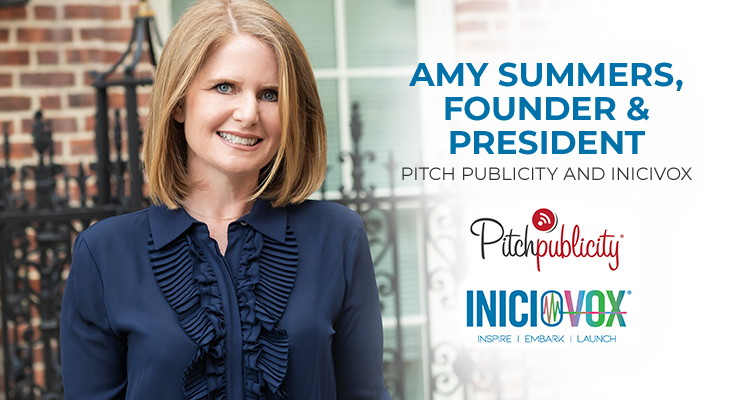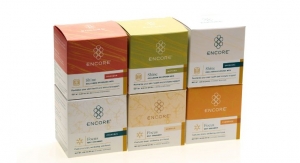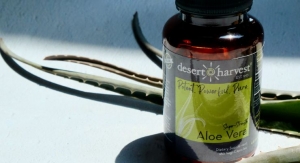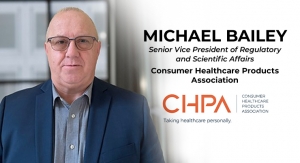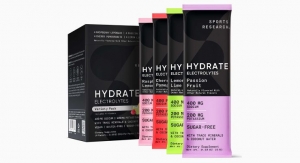By Sean Moloughney, Editor03.30.23
Amy Summers didn’t plan on being an entrepreneur, but her lived experiences led her down that path. After being belittled at a PR firm at a young age by two female bosses, she decided to leave that toxic environment.
“They didn’t even give me my last paycheck,” she recalled. “That’s how little they thought of me at the end, even though I was running their company, basically.”
In a tough economy she was looking for a new job when five different companies reached out to her separately to continue working with her. And that’s how her PR firm Pitch Publicity started 20 years ago.
“I think women can be very turf-guarding and they don’t want you to succeed because—I don’t know—maybe they think there are limited spots for women, which I don’t believe. That’s something I’m hoping to change in the future, to get more women to support women.”
Summers said she was thankful to have a mentor, Anthony Zolezzi, a serial entrepreneur who introduced her to new clients, including Howard Schiffer at Vitamin Angels. Summers would go on to orchestrate the first 7 years of fundraising for the nonprofit.
“Anthony put me in the right rooms, made the right introductions, and really set me up for success early on in my career,” Summers recalled. “Because he backed me and believed in me, I was able to accelerate my business in the early years of Pitch Publicity. I also learned a lot from Anthony on how to network; that it’s a long process of cultivating contacts and developing relationships. He has been a great role model for me to learn important skills in being an effective entrepreneur.”
“When I think back on it," she continued, "he really went out on a limb for me, because at the time I was only 27 or 28 when he was referring all this business to me.”
Built as a communications education platform, INICIVOX is also intended to bridge the gap between education, mentorship, and real-world applications.
“I’m really big on mentorship. Through my company Pitch Publicity, I’ve mentored a lot of young professionals,” Summers said. “It’s just gotten to the point where, of course, I can’t mentor everybody. So I started INICIVOX as a way to experiment with how we can mentor people on a broader scale, also recognizing that people may not have the opportunity to have a mentor.”
Through INICIVOX, Summers has also produced a virtual seminar series titled “Identifying the Elephant in the Room.” The first series took place in the fall of 2020 and was focused on addressing critical communications strategies in the face of racism for professionals entering communications fields.
The second series—Critical Communications Strategies in the Face of Sexism—has been running each Thursday between Mar. 16 and Apr. 20. Speakers have been examining how sexism is addressed within the natural products industry, and how to positively shift behaviors through words and actions.
The six-part virtual series features professionals from various sectors of the industry, who share experiences—both positive and negative—while giving other professionals the courage to learn, ask questions, and seek out ways to use their voices and influence to change sexist behavior and inequalities.
The sessions address sexism in: Trade Media/Associations, Healthcare/Nutrition/Science, Food/Beverage/Beauty, Legal/Finance/Marketing/Retail, Supplements/Ingredients/Pet, and a Finale Feedback Session. Each has been followed by an “After the Elephant” discussion panel hosted by Mark Alyn.
Anyone can come into the virtual series anonymously to listen and learn, and they can ask questions anonymously, Summers said.

When people come into conflict, channels of communication must be opened to understand each other and find solutions, Summers said.
“These topics are somewhat controversial,” she noted. “People don’t necessarily want to address it or talk about it because they don’t know how to approach it. Because of my background in communications, I want to tackle difficult topics. I think there are ways for companies to address this internally. There are ways for us to address them openly. I wanted to show people that it can be done and to also provide mentorship.”
Ultimately, the forum is designed to give people a chance to learn from others “who have been there and done that—who have lived experience,” she added. “That lived experience is important for us to learn from because it’s going to develop our soft skills on how to navigate situations and how to communicate better.”
Many of these issues aren’t part of the curriculum to earn a college degree. “We can get book knowledge about what we’re doing in our industry, but unless we’re interacting with people or learning from them, we don’t get educated on this. So that was the impetus behind it.”
Notably, this discussion isn’t just for women; men need to be part of the conversation, Summers said.
“I was very conscious of making sure that men were involved. One of the things I’ve noticed about when women get together on women’s topics, only women are in the room. We can’t really affect change unless we also have men in the room. They have to be part of this conversation. They are the majority in all the power positions. So unless they are with us and contributing to the discussion, as a female, I don’t really think we could have a progressive movement.”
However, often times, when men think about “sexism,” they may think of sexual harassment or assault and believe it doesn’t pertain to them.
Summers encouraged them to join and listen anyway, “because I think what they’re going to learn is that we’re talking about a lot more than sexual harassment.”
“I believe it’s each generation’s responsibility to press on these issues, to talk about these issues, and to make progress so that we’re constantly passing the baton onto the next generation. I think if a whole generation sits back on any of these -isms—classism, racism, ageism, sexism—and we don’t talk about it, then it’s a disservice to the next generation in that they kind of need to start all over again to work on it.”
Change often happens slowly, incrementally, she admitted. “At the same time, if we’re not discussing it, that awareness isn’t there. But once you realize, ‘oh, I didn’t see it that way,’ or ‘I’ve learned something new,’ that’s step one. Step two would be: ‘let’s do something about it.’”
Measuring progress can be a challenge too, especially if companies aren’t honest or forthcoming about their efforts.
“Let’s not use women empowerment as a marketing tool to make ourselves look better. Let’s pull the curtain back and look at the data and see if it’s actually happening,” Summers said. “And if it’s not, then we need to have these conversations to find out if there is anything we can do differently.”
Summers will also be running an in-person speed networking event to apply learnings from the sexism seminar series at SupplySide East on Wednesday, Apr. 19 (11:30 am to 12:30 pm ET) at the Meadowlands Exposition Center, where Summers along with mentors from the series will showcase best practices for making a good first impression, moving beyond surface talk, recognizing exit cues, avoiding conversation stoppers, and making genuine connections.
“They didn’t even give me my last paycheck,” she recalled. “That’s how little they thought of me at the end, even though I was running their company, basically.”
In a tough economy she was looking for a new job when five different companies reached out to her separately to continue working with her. And that’s how her PR firm Pitch Publicity started 20 years ago.
“I think women can be very turf-guarding and they don’t want you to succeed because—I don’t know—maybe they think there are limited spots for women, which I don’t believe. That’s something I’m hoping to change in the future, to get more women to support women.”
Summers said she was thankful to have a mentor, Anthony Zolezzi, a serial entrepreneur who introduced her to new clients, including Howard Schiffer at Vitamin Angels. Summers would go on to orchestrate the first 7 years of fundraising for the nonprofit.
“Anthony put me in the right rooms, made the right introductions, and really set me up for success early on in my career,” Summers recalled. “Because he backed me and believed in me, I was able to accelerate my business in the early years of Pitch Publicity. I also learned a lot from Anthony on how to network; that it’s a long process of cultivating contacts and developing relationships. He has been a great role model for me to learn important skills in being an effective entrepreneur.”
“When I think back on it," she continued, "he really went out on a limb for me, because at the time I was only 27 or 28 when he was referring all this business to me.”
Critical Communications Strategies
Alongside an established and successful PR firm in Pitch Publicity, Summers launched a second company about three years ago called INICIVOX, which combines two Latin words: “inicio” (to inspire, embark, launch) and “vox” (voice).Built as a communications education platform, INICIVOX is also intended to bridge the gap between education, mentorship, and real-world applications.
“I’m really big on mentorship. Through my company Pitch Publicity, I’ve mentored a lot of young professionals,” Summers said. “It’s just gotten to the point where, of course, I can’t mentor everybody. So I started INICIVOX as a way to experiment with how we can mentor people on a broader scale, also recognizing that people may not have the opportunity to have a mentor.”
Through INICIVOX, Summers has also produced a virtual seminar series titled “Identifying the Elephant in the Room.” The first series took place in the fall of 2020 and was focused on addressing critical communications strategies in the face of racism for professionals entering communications fields.
The second series—Critical Communications Strategies in the Face of Sexism—has been running each Thursday between Mar. 16 and Apr. 20. Speakers have been examining how sexism is addressed within the natural products industry, and how to positively shift behaviors through words and actions.
The six-part virtual series features professionals from various sectors of the industry, who share experiences—both positive and negative—while giving other professionals the courage to learn, ask questions, and seek out ways to use their voices and influence to change sexist behavior and inequalities.
The sessions address sexism in: Trade Media/Associations, Healthcare/Nutrition/Science, Food/Beverage/Beauty, Legal/Finance/Marketing/Retail, Supplements/Ingredients/Pet, and a Finale Feedback Session. Each has been followed by an “After the Elephant” discussion panel hosted by Mark Alyn.
Anyone can come into the virtual series anonymously to listen and learn, and they can ask questions anonymously, Summers said.

Addressing Difficult Topics
The goal of the Elephant in the Room Series is not to solve universal problems. Rather, the aim is to engage in informed conversations around contentious topics in order to learn better ways to approach, respond, and communicate based on the experiences of others.When people come into conflict, channels of communication must be opened to understand each other and find solutions, Summers said.
“These topics are somewhat controversial,” she noted. “People don’t necessarily want to address it or talk about it because they don’t know how to approach it. Because of my background in communications, I want to tackle difficult topics. I think there are ways for companies to address this internally. There are ways for us to address them openly. I wanted to show people that it can be done and to also provide mentorship.”
Ultimately, the forum is designed to give people a chance to learn from others “who have been there and done that—who have lived experience,” she added. “That lived experience is important for us to learn from because it’s going to develop our soft skills on how to navigate situations and how to communicate better.”
Many of these issues aren’t part of the curriculum to earn a college degree. “We can get book knowledge about what we’re doing in our industry, but unless we’re interacting with people or learning from them, we don’t get educated on this. So that was the impetus behind it.”
Notably, this discussion isn’t just for women; men need to be part of the conversation, Summers said.
“I was very conscious of making sure that men were involved. One of the things I’ve noticed about when women get together on women’s topics, only women are in the room. We can’t really affect change unless we also have men in the room. They have to be part of this conversation. They are the majority in all the power positions. So unless they are with us and contributing to the discussion, as a female, I don’t really think we could have a progressive movement.”
However, often times, when men think about “sexism,” they may think of sexual harassment or assault and believe it doesn’t pertain to them.
Summers encouraged them to join and listen anyway, “because I think what they’re going to learn is that we’re talking about a lot more than sexual harassment.”
'Let’s not use women empowerment as a marketing tool to make ourselves look better. Let’s pull the curtain back and look at the data ... '
Measuring Impact
What impact does Summers hope to have through these efforts?“I believe it’s each generation’s responsibility to press on these issues, to talk about these issues, and to make progress so that we’re constantly passing the baton onto the next generation. I think if a whole generation sits back on any of these -isms—classism, racism, ageism, sexism—and we don’t talk about it, then it’s a disservice to the next generation in that they kind of need to start all over again to work on it.”
Change often happens slowly, incrementally, she admitted. “At the same time, if we’re not discussing it, that awareness isn’t there. But once you realize, ‘oh, I didn’t see it that way,’ or ‘I’ve learned something new,’ that’s step one. Step two would be: ‘let’s do something about it.’”
Measuring progress can be a challenge too, especially if companies aren’t honest or forthcoming about their efforts.
“Let’s not use women empowerment as a marketing tool to make ourselves look better. Let’s pull the curtain back and look at the data and see if it’s actually happening,” Summers said. “And if it’s not, then we need to have these conversations to find out if there is anything we can do differently.”
Summers will also be running an in-person speed networking event to apply learnings from the sexism seminar series at SupplySide East on Wednesday, Apr. 19 (11:30 am to 12:30 pm ET) at the Meadowlands Exposition Center, where Summers along with mentors from the series will showcase best practices for making a good first impression, moving beyond surface talk, recognizing exit cues, avoiding conversation stoppers, and making genuine connections.

